Sharing Citizenship Through Marriage in GALA’s ‘Hugo’
GALA Theatre's "The 22+ Weddings of Hugo" weaves an engaging mystery from the real-life tale of a serial bigamist.

All of our hero’s spouses don’t appear onstage in Gustavo Ott’s The 22+ Weddings of Hugo, currently at GALA Hispanic Theatre in José Zayas’ suspenseful D.C. premiere production. Rather, the comedy, first produced last year at Teatro Dallas, zeroes in on two women and one man whose lives were changed by marrying Hugo Wagner.
Through them, we come to see him, and ponder the question they’ll eventually ask: Why, Hugo? What would motivate the mild-mannered postal worker to get hitched to at least 18 different men and women?
Ott, opening his first full season as GALA’s Artistic Director, based Hugo on the true story of a man not named Hugo, who married over 20 times “for an extraordinary and beautiful reason.” The play’s Hugo, portrayed with brio by Carlos Castillo, apparently has many reasons, not all of which he’s eager to reveal, though one motivation is fairly obvious.
The spouses we meet — lovesick Irene (Yaiza Figueroa), wary mother Wafa (Giselle González), and gay writer Elmar (Víctor Salinas) — are all immigrants. By whichever means they entered the United States, they long to stay. And Hugo is happy to help by sharing citizenship through marriage.
The details of Hugo’s divorces, if any, are not made entirely clear, but the serial bigamy and the immigration deception leave Hugo extremely vulnerable to the law. His spouses also risk arrest, detention, and deportation, but they’ve already risked so much just to be in the U.S. — as Irene, Wafa, and Elmar each explain in turn. They’ll gladly take their chances with Hugo.
Of course, there will be a reckoning. Building towards that eventuality, the play’s first act unfolds with a rhythm that borders on formulaic, introducing the three spouses in three successive scenes in which they, respectively, spill their whole history to new husband Hugo.
The action flows realistically through his colorful home in L.A. County. Grisele González’s set design is busy, in a good way, and slightly surrealistic, with doors and windows hung askew over the stage, suggesting the many paths and many lives that lead to Hugo.
Zayas and his cast keep the monologues and banter moving at a brisk, sitcom-style pace, though the comedy is more chuckle-worthy than genuinely hilarious. As Irene, Figueroa leans broad in playing this bubbly Dominicana who’s trying to break her habit of throwing herself at bad men — a drug dealer, a thief, a hitman — and the approach pays dividends with some of the show’s bigger laughs.
Wafa’s a more serious character, burdened by more serious concerns in a scene not played for laughs, and González registers as a bit one-note in conveying the Syrian mother’s fears and frustrations. Even when she’s expressing her hopes for the two sons she had to leave behind in Damascus, Wafa reads as the example of a harrowing immigrant news story.
Although, Wafa does inject a sense of romantic possibility into the tale, referring to Hugo as her malak — that is, her angel — and expressing her gratitude to him with a kiss. His lack of a response adds fuel to the burning question of what he gets out of not just lending his spouses a hand but giving them a home.
That aspect of his humanity is especially highlighted in seeing Hugo, who insists he’s straight, extend the same generosity to husband Elmar that he shows to any of his wives. GALA company member Salinas underplays Elmar beautifully, capturing the gusto behind the Mexican writer’s gentle nature. To Hugo, Elmar is “like a helpless dog” in need of shelter.
Hugo has a big heart, clearly, among other qualities, and to the credit of Castillo, his performance, flamboyant at times, suggests a wealth of reasons why this man might put his neck on the line for all these strangers. “I’m a criminal,” he jokes early on, before a moment of sharply felt danger closes the first act on a tense cliffhanger.
The second act sets aside formula to offer a few surprises as Hugo faces consequences, and Castillo, expressing Hugo’s desperation, finds deeper layers of this man who definitely has been hiding something.
Ultimately, while we get to know Hugo’s humanity through the ones he helped, the play also entreats us to better understand that every immigrant, migrant, “expat,” whoever is an individual with their own set of circumstances and choices to confront, whether it’s being detained by TSA for looking like a terrorist suspect, or simply deciding which surname to use in your new home nation.
Of his home, and of America, Hugo declares, “There’s room for all of us here.” And, as he also demonstrates, respect and kindness are among our most vital renewable resources.
The 22+ Weddings of Hugo (★★★☆☆) runs through Sept. 29 at GALA Hispanic Theatre, 3333 14th St. NW. Performances are in Spanish with English surtitles. Tickets are $25 to $50. Call 202-234-7174 or visit www.galatheatre.org.
Support Metro Weekly’s Journalism
These are challenging times for news organizations. And yet it’s crucial we stay active and provide vital resources and information to both our local readers and the world. So won’t you please take a moment and consider supporting Metro Weekly with a membership? For as little as $5 a month, you can help ensure Metro Weekly magazine and MetroWeekly.com remain free, viable resources as we provide the best, most diverse, culturally-resonant LGBTQ coverage in both the D.C. region and around the world. Memberships come with exclusive perks and discounts, your own personal digital delivery of each week’s magazine (and an archive), access to our Member's Lounge when it launches this fall, and exclusive members-only items like Metro Weekly Membership Mugs and Tote Bags! Check out all our membership levels here and please join us today!






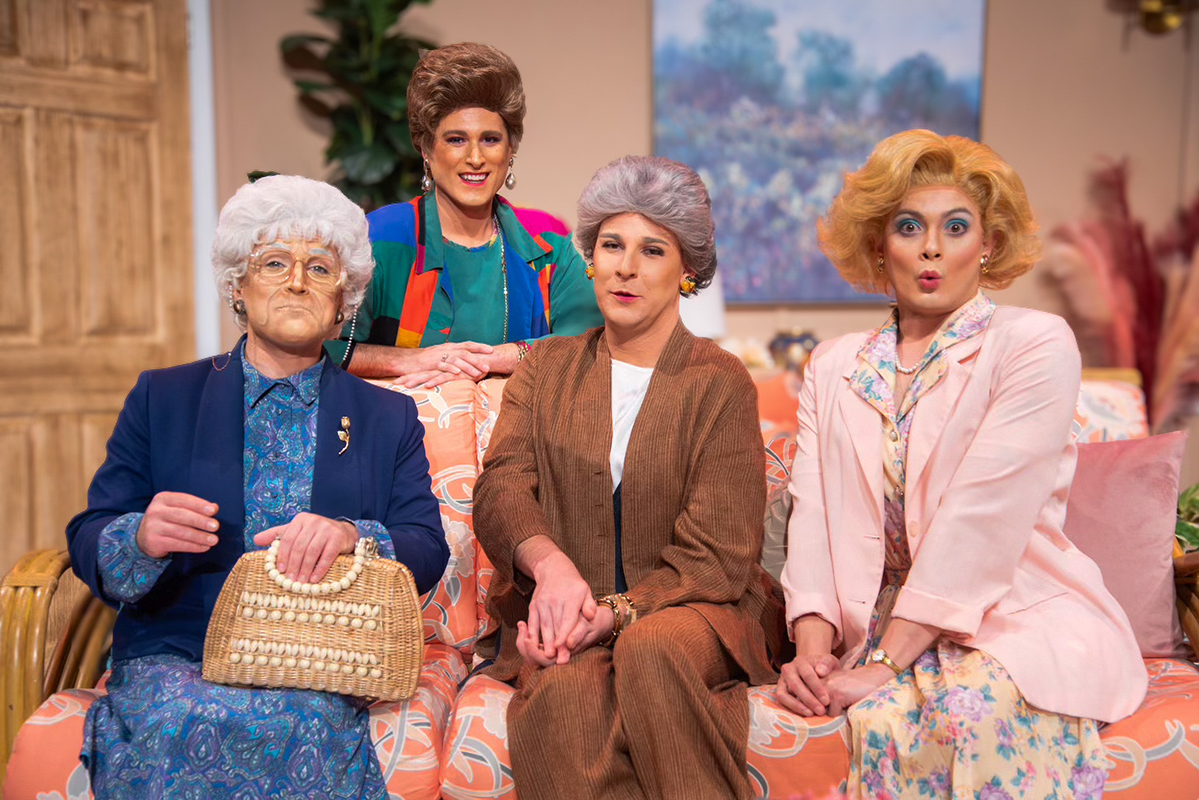

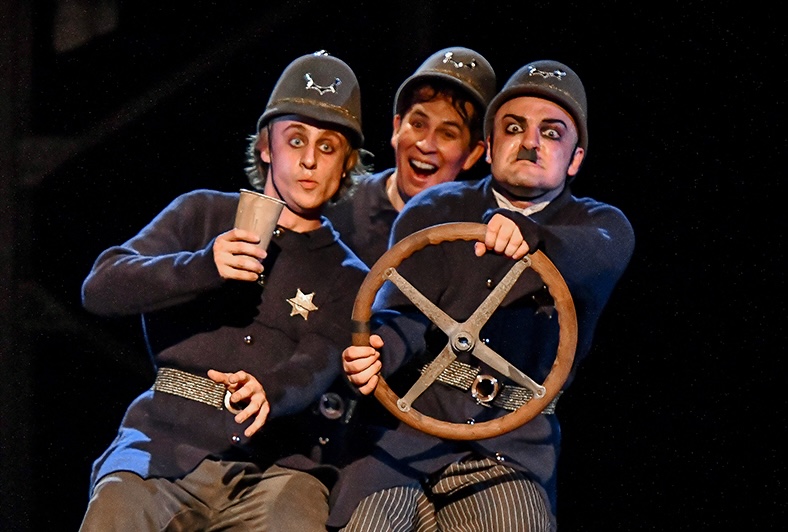












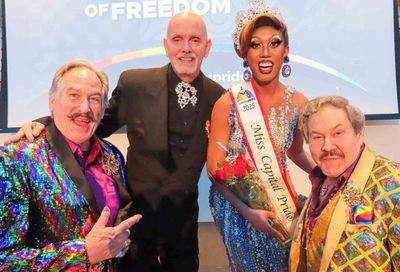
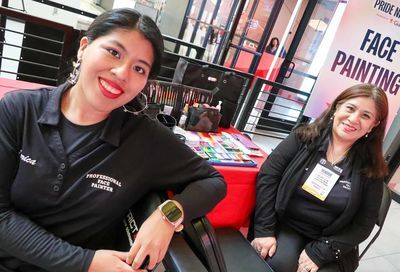
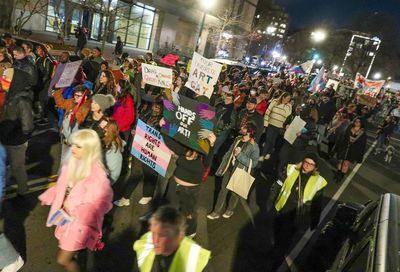
You must be logged in to post a comment.